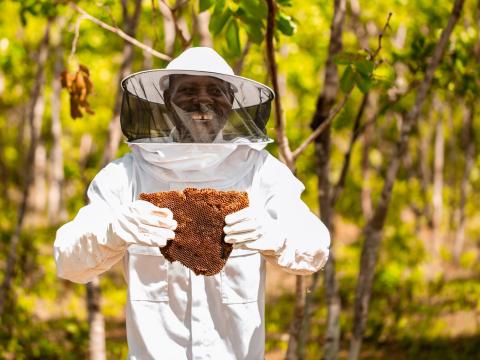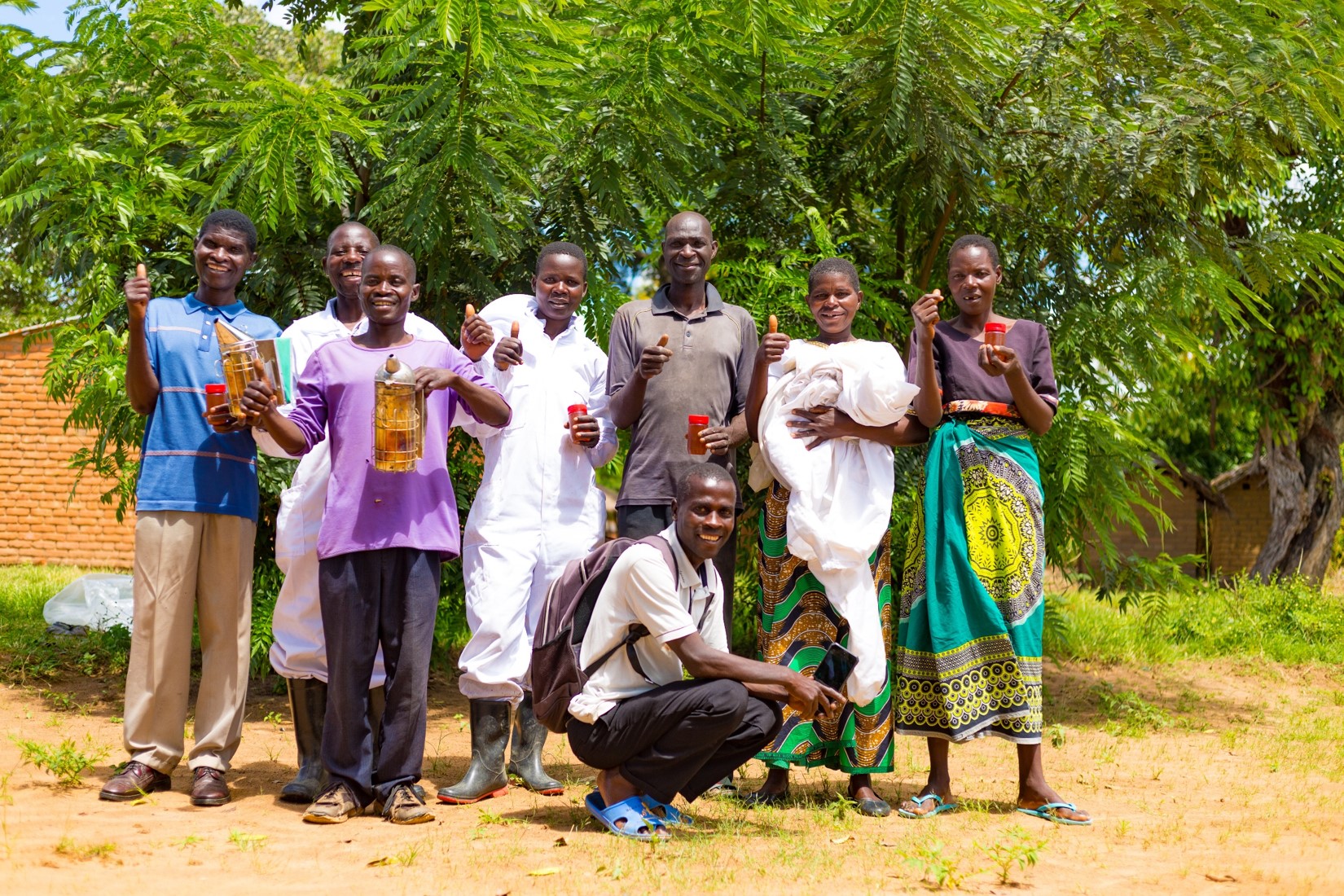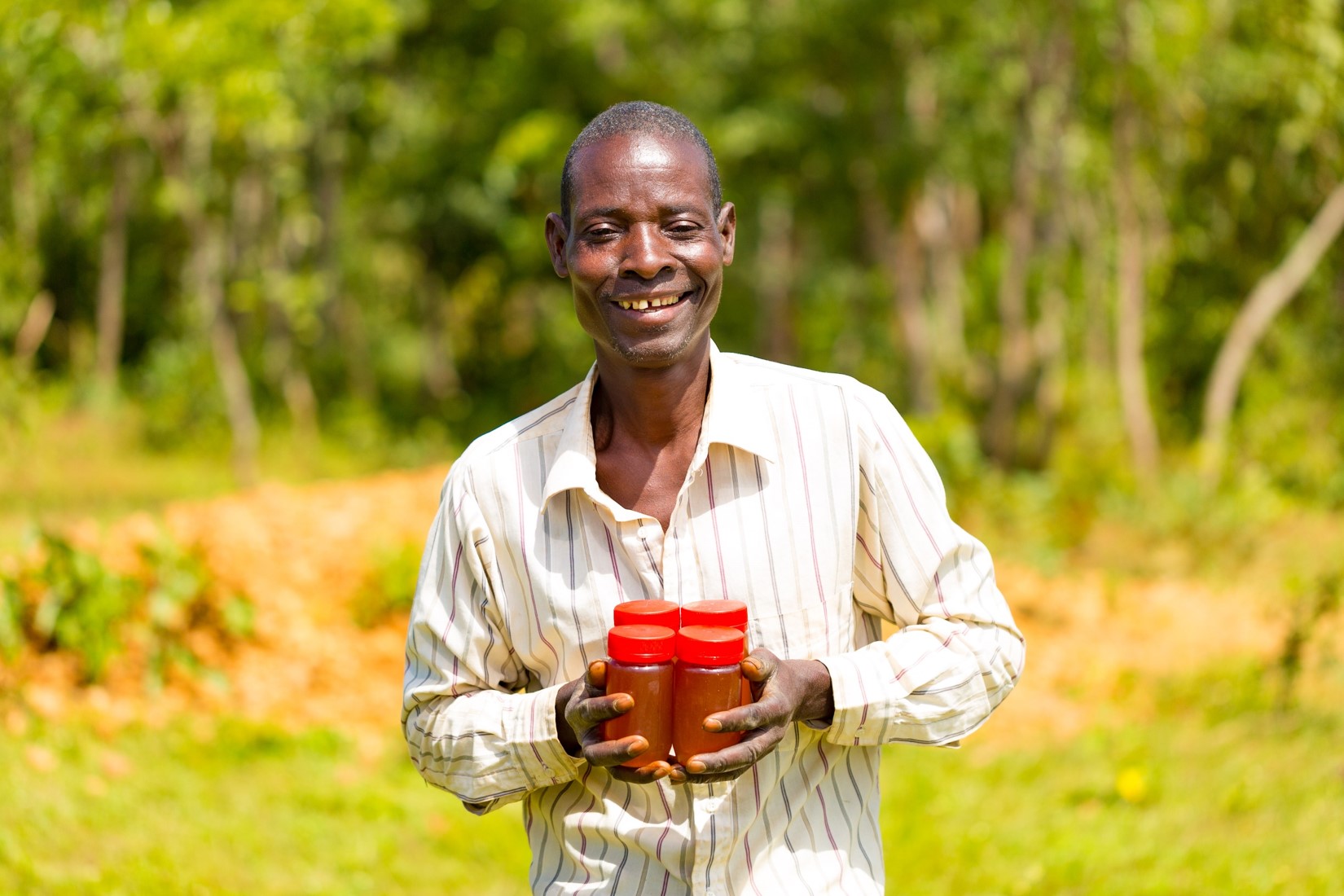From Failed Maize to Flourishing Hives: Malawi Villagers Find Hope in Honey

By Trinity Kubalasa
Communications and External Engagement Manager, World Vision Malawi
For decades, villagers in Bua Mtete relied primarily on maize farming. However, as climate change took its toll, prolonged dry spells and unpredictable rains reduced yields.
Many families faced food shortages, and children have often been affected by malnutrition resulting in higher cases of school drop-out.
However, in 2017, their hope got recharged when World Vision Malawi introduced bee-keeping as part of its Livelihoods Program.

Mankhwala forest group started bee-keeping in 2016 but they were failing to produce enough honey yield due to insufficient knowledge, and skills on bee-keeping.
In 2017, World Vision Malawi visited them and provided the community with a practical training on hive management, honey harvesting, and processing techniques. This has changed their lives.
One of the beneficiaries, Edina Cosmos, 46 year old, single mother of four children praised the initiative for being transformative.
“Before this, I was struggling to buy school materials like notebooks, pens, uniform for my children. Now, I now can afford paying school fees for my children without disturbing my cashflow,” she says.

In the previous season, Mankhwala forest group harvested 123 liters of honey, which fetched MWK 6000 per liter, earning over MWK 730,000 more than they had ever made from maize farming in a single season. The group also makes honey-infused skincare products which bring in extra income.
Encouraged by this, they expanded their beekeeping farming by acquiring more hives. Today, Mankhwala forest group manages 12 beehives and families now consume natural honey which has numerous health benefits.